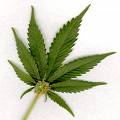 By Ross Parker
ticklethewire.com
By Ross Parker
ticklethewire.com
The evidence continues to mount of the dangerous health risks of today’s potent forms of marijuana, especially to segments of the population such as juveniles and young adults. But the medical evidence seems to be having little effect in view of a combination of denial, lack of political will, and ignorance on the part of state legislators and the public in general, as well as the well organized and financed forces of legalization.
Last week The New England Journal of Medicine, probably the most respected medical journal in the United States, reported in an article entitled, “Adverse Effects of Marijuana Use,” by four physicians and researchers that there is a substantial level of scientific confidence that the drug can result in addiction, memory and cognitive function damage, impairment of motor function, and long lasting negative changes in brain function. Their conclusion was that increased availability from legalization will significantly increase the negative health consequences to the population.
As shown in other studies, short term use makes it difficult to learn and retain information. Driving skills are impaired. Risky behavior and even paranoia and psychosis can result. Long term use can alter brain development, encourages dropping out of school, a lower IQ during adolescence, reduced satisfaction and achievement, chronic bronchitis, and an increased risk of schizophrenia.
Although the study advises that there can be other factors involved in these devastating results, the link between marijuana and social factors such as lower income, more public assistance, unemployment, criminal behavior, and a lower life satisfaction has been established by several studies. People who used the drug before driving were from 2 to 7 times as likely to be responsible for an accident than those who had not used alcohol or marijuana.
The increase in the average potency of THC content continues to increase, from 3% in the 1980s to 12% in 2012. As the cultivation continues to become more sophisticated in states like Colorado and California, one could expect this figure to increase significantly and, correspondingly, to increase the extent of the adverse effects on increasing numbers of people in the population. Increased emergency room visits (100 % increase from 2004 to 2011) and reports to poison control centers (three times the number in legalization states) forcefully demonstrate that this phenomenon is well under way.
Importantly, this steep increase in the THC content also calls into question the validity of all of those studies done in previous decades. The assurances of those early studies, on which pro-legalization forces rely so heavily to assuage the reluctance of state legislators, are worth little in the face of these statistics and the recent medical studies.
The article reports that there is evidence that marijuana or other cannabinoids may benefit symptoms associated with certain clinical conditions such as glaucoma, nausea, inflammatory diseases, MS, and epilepsy. However, more research is necessary to confirm these findings, as well as to determine the most effective form of administration.
Since medical marijuana prescriptions issued to adults are a major source of recreational use by juveniles, states must develop an effective method of regulation, as well as education about the dangers of both inadvertent and commercial distribution for non-medical use. Anyone who reviews medical marijuana advertisements or talks to law enforcement officers about the level of therapeutics of many of such clinics, can only question whether the drug legalization is actually accomplishing a fraction of the benefits touted by its advocates.
Recently, I walked around Venice and Santa Monica beaches in southern California. The number and appearances of the “medical” marijuana clinics in the narrow streets leading to the beaches were strikingly non-medical to everyone I was with. The medical purpose of such businesses seemed like a joke. A local federal agent confirmed that the great majority of the large amounts dispensed were universally known to be used recreationally and were so ubiquitous as to be unenforceable. The genie was out of the bottle.
Twenty-two states have legalized marijuana use in some form or another. One can only hope that other states will pause in this trend and consider the mounting medical evidence of significant health and well being problems in so many different categories. Perhaps studies in the 22 states will demonstrate that the cost of these policies is so great as to demand reconsideration.





The New England Journal of Medicine will never tell you that they get contributions from big pharma companies. I do not smoke Marijuana and don’t have the urge to do so. However, I’ve met with many people who are doing well because Marijuana is legalized for medical reasons.